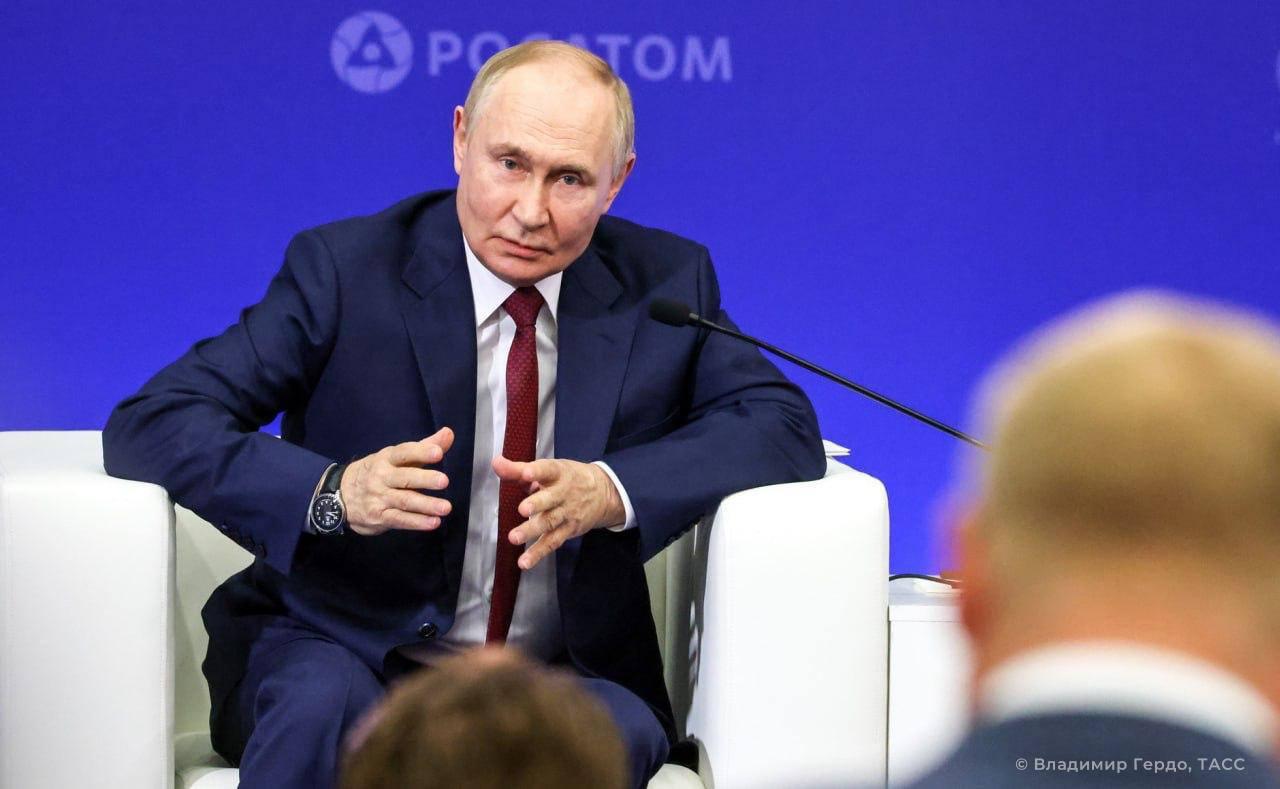
During his visit to the Russian Federal Nuclear Centre – National Research Institute of Experimental Physics in Sarov, Nizhny Novgorod Region, President Vladimir Putin addressed young specialists from the country’s nuclear industry. The visit coincided with the 80th anniversary of the establishment of the special committee for atomic energy on August 20, 1945, which marked the birth of Russia’s nuclear sector.
Putin congratulated the nearly half a million people working in Russia’s nuclear industry, paying special tribute to veterans whose efforts created the nation’s nuclear shield and laid the foundation for both security and peaceful nuclear development. Director General of Rosatom Alexei Likhachev clarified that 420,000 people are currently employed in the sector.
The President highlighted the historical contributions of outstanding scientists like Igor Kurchatov, Yuly Khariton, Yakov Zeldovich, Nikolai Semyonov, and Andrei Sakharov, noting their role in building nuclear devices, test sites, reactors, submarines, and icebreakers despite the devastating aftermath of World War II. Putin emphasised that ensuring nuclear parity was a true victory of the Russian people.
He recalled that Rosatom, the state corporation managing the nuclear industry, was established in 2007, with significant contributions from Sergei Kiriyenko. Today, Rosatom is a global leader in nuclear technology, with expertise in Generation III+ reactors and ongoing work on fourth-generation systems using fast neutrons and closed fuel cycles, aimed at eliminating radioactive waste and increasing energy potential.
The President outlined Rosatom’s advancements beyond energy production, including infrastructure projects like the Northern Sea Route (part of the Trans-Arctic Transport Corridor), the construction of Europe’s largest radiopharmaceutical production facility in Obninsk, and the development of quantum computers with applications in medicine and materials science. He praised Rosatom’s contribution to mega-science projects such as the National Centre for Physics and Mathematics in Sarov.
Putin also discussed future-oriented projects such as controlled thermonuclear fusion and the development of space systems with nuclear-powered tugs, which open new opportunities for deep-space exploration. He underlined that these programmes strengthen Russia’s defence, sovereignty, and create opportunities for young scientists and engineers.
In recognition of the industry’s anniversary, over 1,400 Rosatom employees received state awards. The title of Hero of Labour was awarded to Viktor Ignatov, Director of the Kalinin Nuclear Power Plant, and Andrei Karavayev, a lathe operator at the Chepetsk Mechanical Plant. The Russian Federal Nuclear Centre team received the Order for Valiant Labour.
During the meeting, young employees raised questions about the sector’s challenges. Vladimir Kryukov from the Leningrad Nuclear Power Plant highlighted ambitious plans to increase nuclear energy’s share from 20% to 25% of Russia’s energy mix by 2042, with 38 new power units planned. However, he pointed out a shortage of engineers and construction workers and suggested increasing state-funded university places for relevant disciplines. Putin agreed that professional training is crucial and stressed the need for early career guidance and promotion of engineering as an exciting career path.
Rosatom chief Likhachev noted that the shortage of construction workers is a nationwide issue and suggested systemic solutions to make such professions more attractive. Putin assured that the government would consider Rosatom’s specific needs for workforce development and emphasised the importance of promoting the nuclear field among young people.
International cooperation was another key topic. Yegor Kvyatkovsky, a Rosatom trade representative, discussed the company’s 41-unit international project portfolio, including 22 units currently under construction abroad. He noted the shift toward friendly countries like China, India, Bangladesh, Türkiye, ASEAN and BRICS nations after 2022, while continuing limited operations in Western markets despite political pressure.
Putin responded that Russia had not lost many Western projects except Finland and continues cooperation with Hungary and other countries. He stressed that there are no unfriendly nations, only unfriendly elites, and highlighted that Russia still supplies nuclear fuel and services abroad. He also noted continued scientific collaboration with European experts despite political challenges.
The President reiterated that the nuclear industry remains a key part of Russia’s foreign policy and technological advancement. He assured the audience that Russia will pursue constructive international relations while strengthening domestic capabilities in science, technology, and energy.
The event concluded with an award ceremony and a discussion session, underlining the government’s commitment to supporting Rosatom and inspiring the next generation of nuclear specialists.




